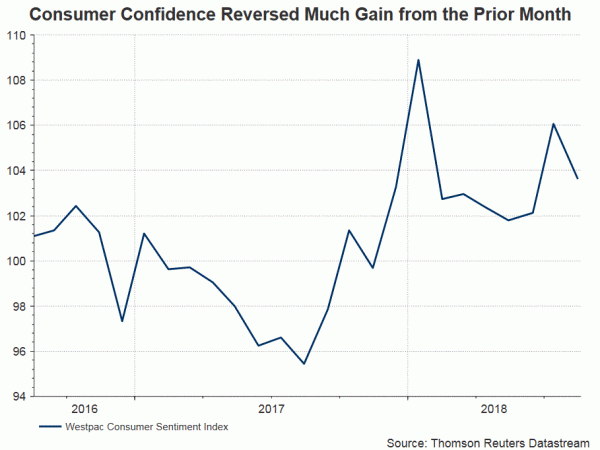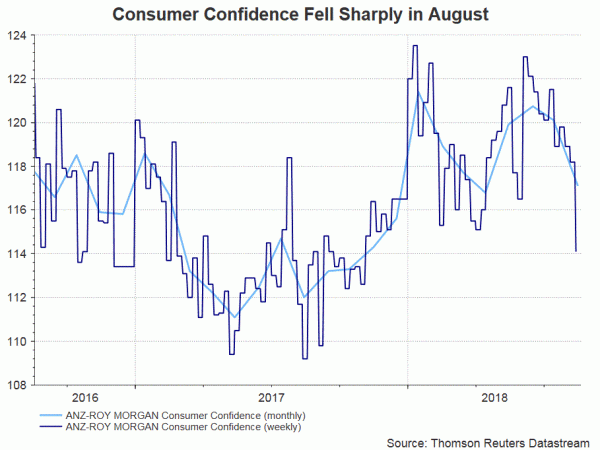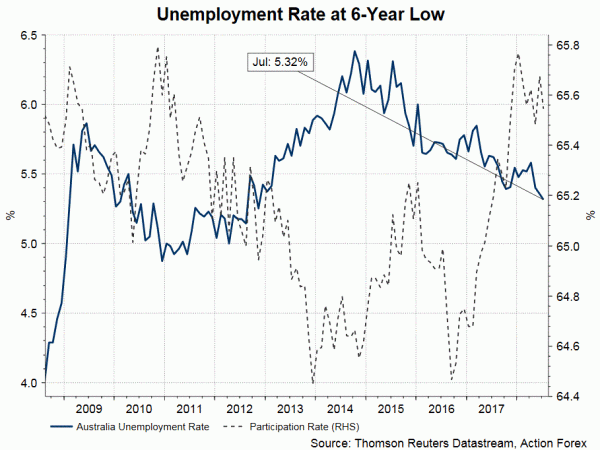The RBA minutes of the August meeting contained little news, in particular after release of the quarterly Statement of Monetary Policy two weeks ago and Governor Philip Lowe’s parliamentary testimony last week. The minutes reiterated confidence over domestic economic development, hinging on the robust employment market. We also notice that the minutes revealed the members optimism over the consumer market. We wonder if the surprising decline in consumer sentiment would affect the members’ view at the upcoming meeting. Echoing the policy statement, the members acknowledged soft wage growth but remained hopeful that it has been troughed. RBA expected that household consumption should improve as wage growth gathered momentum.
As suggested in the minutes, the second quarter retail sales affirmed “steady growth” in consumption, as supported by “growth in labour income”. Policymakers indicated that the data released between the July and August meetings, together with the more recent increase in minimum wages, the announcement of future tax cuts and expectations of a further tightening in labour market conditions, had “reduced some of the uncertainty around the outlook for consumption”.
The latest surveys on consumer confidence have shown some worries, though. Last week’s consumer sentiment, by Australia Westpac Melbourne Institute, fell -2.3% to 103.6 in August, reversing half of the “surprisingly strong gains in June to July” as the impact of government’s tax cuts faded. The decline also came against the backdrop of rising global trade tension and housing markets correction in Sydney and Melbourne.
Meanwhile, the ANZ-Roy Morgan weekly consumer confidence plunged to 114.1, lowest reading recorded so far for the year, in the week ended August18/19, from 118.2 a month ago. Looking into details, consumer’s lost confidence in all aspects surveyed, with sharp decline in particular in future financial and economic conditions.
The July employment report released last week generally confirmed the strong job market. Unemployment rate slipped -0.1 percentage point to 5.3% in July as participation rate edged lower to 65.5%.
However, the number of employment surprisingly contracted -3.9K last month, compared with consensus of a +15K increase and June’s 50.9K addition. Full time jobs rose +19.3K, more than halved July’s increase of +41.2K.
Wage growth remained low, climbing +0.6% q/q, and +2.1% y/y, in 2Q18. The third quarter data might be boosted by an increase in minimum wage which took effect on July 1.
Aussie’s reaction was rather muted after the minutes. The minutes should not change market expectations that the next rate hike would come in 2H19 the earliest.



